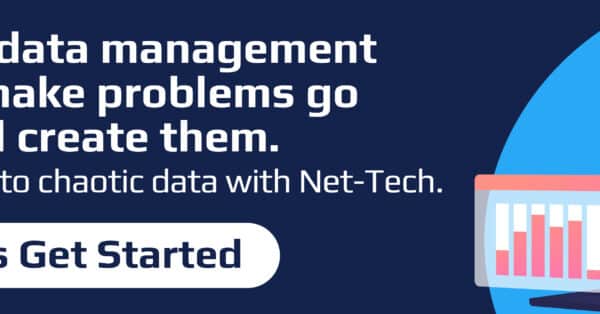Data Management Best Practices: Then and Now


Data fuels most businesses today. The way a company manages its data can significantly impact decision-making, innovation, and security. However, with rapidly evolving technology and regulations, keeping up with data management best practices is essential.
Outdated or ineffective data management practices create major risks ranging from flawed business insights to non-compliance fines. Therefore, modernizing your strategy is a necessity rather than an option. Transitioning from isolated data and manual processes to integrated systems and automation helps drive greater efficiency, risk mitigation, and quick adaptation to meet rising challenges in the business world.
Recognizing Outdated Data Management Practices
Before strategizing solutions, it's crucial to recognize red flags in your existing data management strategy. Common outdated practices include:
Inefficient data governance
Without clear rules or consistency in data handling, your business faces multiple perils - from inconsistent availability to compliance failures. Poor data governance often stems from lack of centralized policies and responsibilities. This further cascades into patchy access, data quality issues, and increased vulnerability.
Poor data quality
Much like an engine relies on high-grade fuel, business decisions rely on high-quality data. However, flawed data leads to equally skewed strategies. Low quality data typically suffers from inaccuracy, incompleteness, and obsolescence—siphoning productivity by wasting resources on collecting or validating information repeatedly.
Data silos and lack of integration
Disparate data sources that don't communicate, also known as data silos, obstruct a unified business view. Such fragmented data leaves departments to operate in isolation rather than collaborating for maximum productivity. Moreover, crucial data can often slip through the cracks causing decisions to be made minus essential context.
Transitioning to Modern Data Management Practices
While recognizing outdated practices reveals scope for improvement, acting towards change is the vital next step. Transitioning to a modern framework requires evolving your perspective—where data management becomes an integral business discipline rather than just an IT function.
The core facets of this discipline entail:
- Implementing comprehensive data governance programs
- Emphasizing data quality
- Architecting scalable and flexible data infrastructure
- Leveraging automation to set up structured workflows.
With the rising tide of data, adopting an integrated approach provides a robust foundation for harnessing its true potential while keeping risks at bay.
New & Proven Data Management Best Practices
While revamping your strategy may seem overwhelming, partners like Net-Tech make the process simpler through proven solutions built over years of experience.
Customized SharePoint integration
SharePoint is often underutilized as just a content repository, whereas tailored data management services by Net-Tech aid wider applications - integrating data workflows, collaboration, and business intelligence - all from a user-friendly interface.
Architectural blueprint for data management
Taking an architectural blueprint approach creates a strategic roadmap encompassing infrastructure, policies, roles, and processes to establish a stable and agile data management framework. This foundation is crucial for scalability and compliance.
Discover 17 Data Management Dos and Don’ts
Cost-efficiency
Enterprise-class infrastructure and systems may seem expensive for small businesses. The solutions offered by Net-Tech provide robust functionalities like backup, recovery, access controls, and workflow automation at optimized costs - saving resources without compromising information integrity.
Enhanced security and compliance
Along with cost and resource optimization, Net-Tech employs multilayered security protocols spanning access controls, encryption, audits, testing, and monitoring. This helps satisfy internal governance needs as well as external regulatory compliance requirements.
Implementing modern data management practices
While wide-ranging technology exists to enhance data strategies, implementation is key to manifest tangible benefits. Core aspects of this phase involve:
Automation and standardized processes
Automating repetitive manual processes through workflow standardization improves consistency, prevents errors, lowers costs, and enables focus on value-adding priorities.
Faster onboarding and compliance processes
Documentation, training, and integration protocols help employees adopt new data management solutions faster while ingraining compliance and security best practices from the start.
Ongoing security upgrades and breach prevention
Along with baseline security measures, ongoing upgrades via audits, tests, and monitoring protocols help tackle evolving cyber threats proactively before they metastasize into data breaches.
Get Consistent and Reliable Data Management for Your Business
While assessing the scope for improvement can shine a light on current data management limitations, taking the next step towards change is key. Revamp outdated strategies with help from experts like Net-Tech offering modern solutions tailored for your business needs and resources.
Reach out to Net-Tech today for a comprehensive review of existing practices, followed by time-bound recommendations aligned to growth and risk mitigation objectives. With competencies spanning customized integrations, security protocols, and automation—leverage their expertise to future-proof your data in an ever-evolving digital landscape.





